
Related products
Many things can be done to increase low progesterone levels. Diet, supplements, and lifestyle changes can all help to boost this important hormone.
In this post, we'll take a look at some of the best ways to increase progesterone production. Read on to learn more!
What is progesterone?
Progesterone is a hormone that is produced by the ovaries and plays an important role in the menstrual cycle. Luteinizing hormone stimulates the corpus luteum to produce progesterone.
It helps to prepare the lining of the uterus for the implantation of a fertilized egg, and if pregnancy does not occur, it helps to shed the lining of the uterus.
Progesterone levels fluctuate throughout the menstrual cycle and peak just before ovulation.
A woman's progesterone levels can also be affected by her age, weight, stress levels, and medications.
In some cases, a woman may need to take supplemental progesterone in order to maintain a healthy pregnancy.
Progesterone is also sometimes used as a treatment for menopausal symptoms such as hot flashes and night sweats. It is an essential component in maintaining hormone balance in the body.
To assess you progesterone levels, order an at home Welzo Progesterone Test.
Why Increase Progesterone Levels?

There are a number of reasons why you might want to increase your progesterone levels.
For instance, if you have irregular periods or no periods at all, progesterone supplements can help regulate your cycle.
If you are trying to get pregnant and have had difficulty conceiving, increasing your progesterone levels can help you become pregnant by preparing your uterus for implantation.
And if you are experiencing symptoms of menopause such as hot flashes or vaginal dryness, increasing your progesterone levels can help alleviate these symptoms.
Menopause & Progesterone Levels
During menopause, decreased levels of progesterone can cause changes in a woman’s body. Some of these changes include hot flashes, night sweats, mood swings, weight gain, and vaginal dryness.
Bioidentical hormone replacement therapy can help treat these menopausal symptoms by replacing the hormones that are no longer being produced by the ovaries.
The Different Roles of Progesterone in the Body
Progesterone is classified as a sex hormone, but it's present in both men and women. In men, progesterone is produced in the adrenal glands and testes.
In women, it's produced in the ovaries and adrenal glands. Progesterone plays many roles in both sexes, including:
-
Maintaining pregnancy
-
Regulating the menstrual cycle
-
Creating new life (sperm and eggs)
-
Controlling sex drive
-
Forming part of the stress response system
Some of these roles might not be immediately apparent. For example, you might not think of progesterone as being involved in stress relief.
However, when you understand how progesterone works, it makes perfect sense. Let's take a closer look at some of the different roles progesterone plays in the body.
Maintaining Pregnancy & Regulating the Menstrual Cycle

One of progesterone's most well-known roles is maintaining pregnancy. Once an egg has been fertilized, progesterone is released to help prepare the lining of the uterus for implantation.
Progesterone levels continue to rise during pregnancy, helping to sustain the pregnancy until childbirth.
Progesterone also plays an important role in regulating the menstrual cycle. It helps to thicken the uterine lining in preparation for implantation. If implantation doesn't occur, progesterone levels drop and menstruation begins.
Creating New Life & Controlling Sex Drive
Progesterone also plays a role in creating new life. In men, progesterone is necessary for sperm production. In women, it helps to regulate ovulation.
By controlling when ovulation occurs, progesterone can help increase or decrease a woman's sex drive.
How to increase progesterone?
The following are some effective ways to boost progesterone levels.
Supplement with vitamin B6.
Vitamin B6 is necessary for the production of progesterone. It can be found in foods such as chicken, fish, whole grains, and bananas.
You can also take a vitamin B6 supplement. Talk to your doctor before taking any supplements, as they can interact with other medications you may be taking.
Reduce stress levels.
Stress can have a negative impact on hormone levels, including progesterone levels. If you are trying to conceive, it is important to find ways to reduce stress in your life. Some stress-relieving techniques include yoga, meditation, and deep breathing exercises.
Eat foods that contain healthy fats.
Healthy fats are necessary for hormone production, so consuming foods such as avocados, olive oil, and nuts can help increase progesterone levels.
Get enough sleep.
Getting enough sleep is important for overall health and can also help regulate hormones. Most adults need between 7 and 8 hours of sleep per night.
Exercise regularly.
Exercise has many benefits for your overall health, including regulating hormone levels. moderate-intensity exercise for 30 minutes on most days of the week is recommended for people who are trying to conceive.
However, it is important to talk to your doctor before starting any new exercise routine if you have any medical conditions or concerns.
What Vitamin increases progesterone?
Vitamin B6 is a water-soluble vitamin that is involved in over 100 enzymatic reactions in the human body.
It is essential for many biochemical processes including the metabolism of amino acids, carbohydrates, and lipids.
Vitamin B6 is also necessary for the synthesis of nucleic acids, hormones, and neurotransmitters.
In addition, vitamin B6 plays an important role in immune function and red blood cell metabolism. One of the most important functions of vitamin B6 is its role in hormone synthesis.
Vitamin B6 is necessary for the production of progesterone, a hormone that plays a critical role in fertility, pregnancy, and menopause.
Progesterone levels are low in women with infertility and PCOS, and supplementing with vitamin B6 has been shown to increase progesterone levels in these women.
Vitamin B6 is also important for pregnant women as it helps to prevent morning sickness and promotes a healthy pregnancy.
The Recommended Daily Intake (RDI) for vitamin B6 is 1.3 mg/day for adults. Food sources of vitamin B6 include poultry, fish, meat, potatoes, bananas, and nuts.
Supplementing with vitamin B6 is generally considered safe, but high doses can cause nerve damage.
Therefore, it is important to consult with a healthcare practitioner before taking supplementation.
How can I get natural progesterone?
To increase progesterone naturally you must eat foods such as eggs, chicken, beef, and dairy products.
It can also be synthesized in a laboratory. Supplementation with natural progesterone has been shown to be effective in treating conditions such as PMS, endometriosis, and menopause.
It is also being investigated as a possible treatment for breast cancer. Natural progesterone is generally considered to be safe, with few side effects reported.
However, it should not be used during pregnancy unless directed by a healthcare provider.
What are progesterone creams?

Progesterone creams are topical treatments that contain synthetic progesterone. They are typically used to treat menopausal symptoms, such as hot flashes and night sweats.
Some research suggests that progesterone creams may also help to improve bone density and reduce the risk of osteoporosis.
However, more research is needed to confirm these effects. Progesterone creams are safe for most people to use, but they can cause side effects, such as headaches and dizziness.
If you're considering using progesterone cream, talk to your doctor about the potential risks and benefits.
Bottomline
Progesterone is an important hormone that plays a role in fertility, pregnancy, and the menstrual cycle.
Sometimes the body does not produce enough progesterone on its own and it becomes necessary to supplement with exogenous sources of the hormone.
This can be done through oral supplements, injections, or topical treatments. Talk to your doctor about which method of supplementation would be right for you.
Find out more about your health concerns by reading through the information on our Welzo Health Hub.




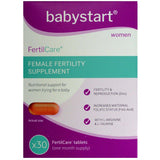






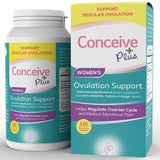
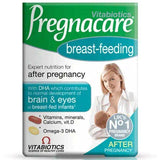





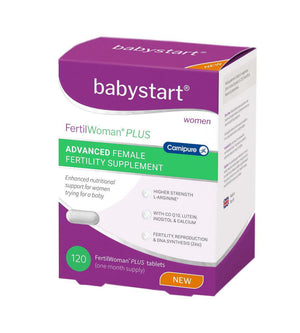
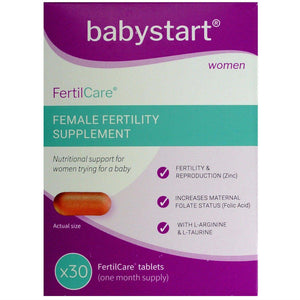
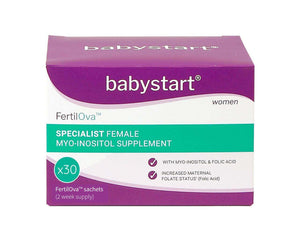


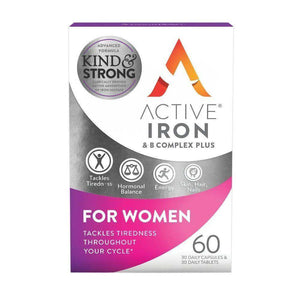


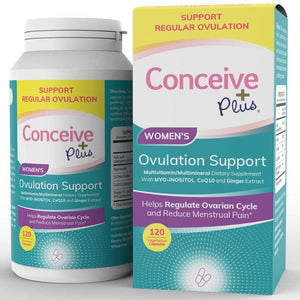
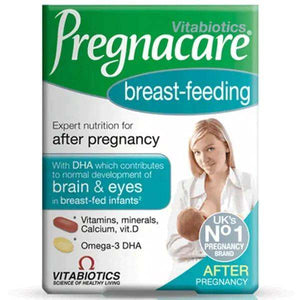








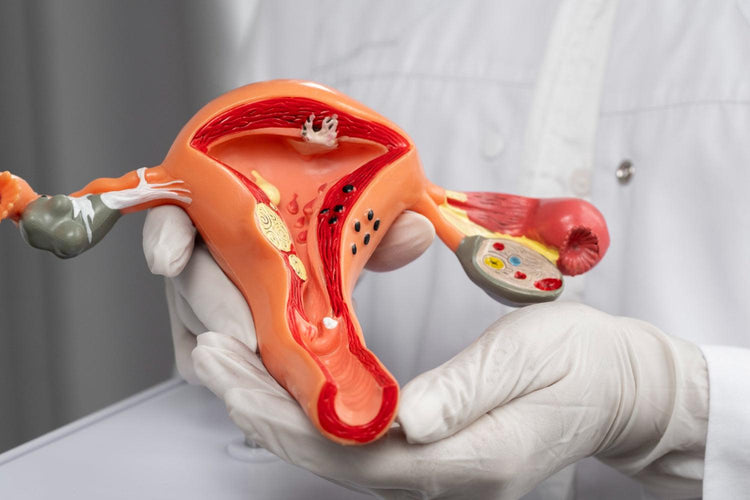

 Rated Excellent by 26,523+ Reviews
Rated Excellent by 26,523+ Reviews